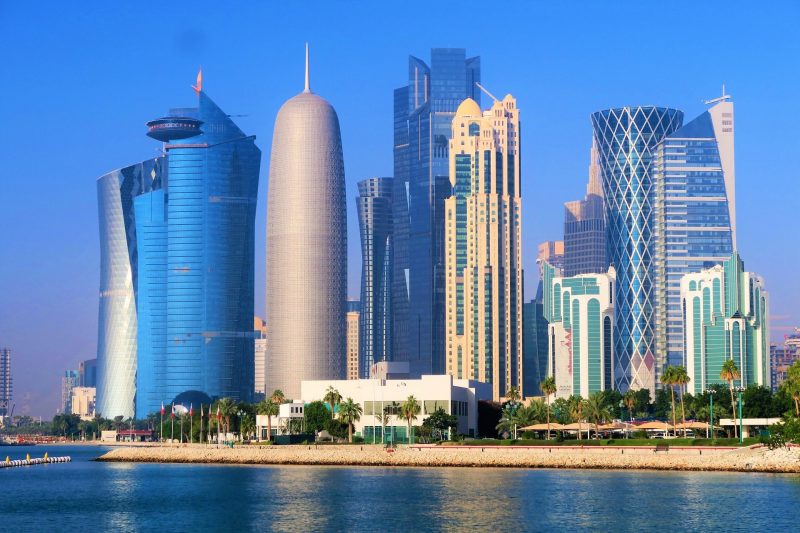The lowest scorers included Syria, Yemen and Libya —all of which have been mired in instability since the 2011 Arab Spring.
Qatar has been ranked the second-top country in the Middle East and North Africa region in combating corruption following the United Arab Emirates, the Corruption Perceptions Index (CPI) 2022 revealed on Tuesday.
Published by Transparency International, Qatar scored 58 out of 100 out of Arab states in the fight against corruption whilst the UAE scored 67.
The lowest scorers included Syria (13), Yemen (16) and Libya (17)—all of which have been mired in instability since the 2011 Arab Spring.
“The region continues to struggle with authoritarianism, with even the leadership changes sparked by the Arab Spring uprisings of over a decade ago ultimately failing to dismantle the power structures that allow those at the top to retain control and hinder political integrity,” the report read.
The annual report ranks 180 countries and territories “by their perceived levels of public sector corruption”. The score 0 is considered highly corrupt whereas 100 is “very clean”.
While the UAE was the highest scorer, the CPI warned that it began displaying “worrying signs of decline.”
“While its government has taken steps to increase efficiency in public administration, there is still little transparency and mechanisms to protect against corruption and other abuses are lacking,” it said.
On a global scale, Qatar ranked 40 with a score of 58, dropping from 64. The CPI attributed the drop to its alleged abuses of workers’ rights in preparations for the 2022 FIFA World Cup.
The Gulf state repeatedly said it responded to those claims by introducing major reform, including the dismantling of the controversial kafala, or sponsorship, system. It had also introduced the region’s first non-discriminatory minimum wage law.
Qatari officials also stressed that reform would go beyond the sporting event, admitting that more work needs to be done to further improve workers’ situation.
The CPI further cited the lack of access to information in the country.
“Corruption risks in Qatar go far beyond this event, as public access to relevant information on state procurement and government budgeting is highly restricted,” the CPI said.
Qatar has appeared to take steps in order to provide the right to access information after the Shura Council approved a draft law last year on the matter. The cabinet stated then that the draft law aimed to “keep pace with global developments” with regards to accessing information.
In 2005, Qatar joined the international community in signing the 2003 UN Convention Against Corruption.
Regional turmoil
Looking at the Middle East and North Africa, the average declined in 2022 by hitting 38, citing ongoing violent conflict and civil unrest in different parts of the region. It also attributed the ranking to the favouritism system, or “wasta”, along with bribery that further fuel conflicts.
Using Libya as an example, it detailed the ongoing political and economic turmoil post the Arab Spring and toppling of the former leader Muammar Gaddafi. Tripoli is still fractured under the delayed elections, raising concern of further unrest.
Meanwhile, Syria continues to be ruled by the Bashar Al Assad regime, which continues to carry out deadly massacres against civilians with an absence of accountability. More recent reports further backed evidence of the illegal use of chemical weapons.
“Twelve years of fighting has collapsed the infrastructure – leaving much of the population without access to clean water, health care and food – and the country is now facing a cholera outbreak,” the CPI said.
The CPI further noted that no country in the region ranked any better than “high” risk under Transparency International’s Government Defence Anti-Corruption Index.
“Even in countries not actively engaged in conflict, considerable defence budgets are aimed at others in the region – such as the Gulf countries’ spending in Yemen. At the bottom of the region (and the world), Yemen and Syria demonstrate the tragic impact of protracted conflict,” it added.
The majority of the Middle East and North Africa region are still in support of democracy and the Arab Spring revolutions. This was revealed last month in the 2022 Arab Opinion Index (AOI).
Conducted by the Qatar-based Arab Center for Research & Policy Studies (ACRPS), the survey is the biggest of its kind on a regional level and saw 33,300 respondents from 14 countries in the MENA share their perceptions on numerous policies concerning them.
Looking at the region’s perceptions towards democracy, 72% of respondents said they are in favour of democratic rule in comparison to 19% who were against it. Figures in support of democracy were highest among the levant and North Africa region.







